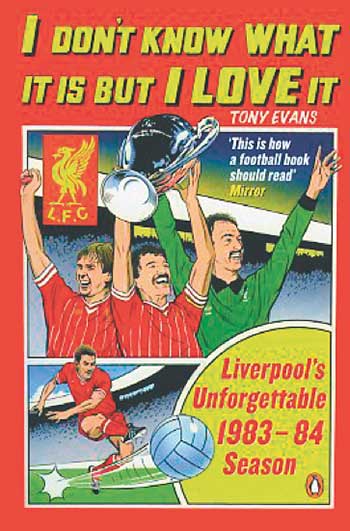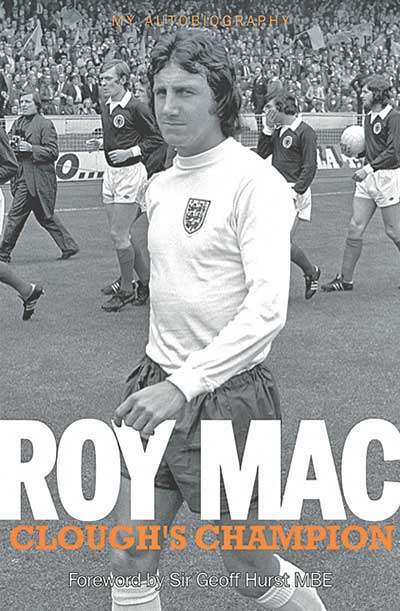Search: ' Mark Robins'
Stories

Fleetwood make an impact at the top, while off-field issues hampered some big clubs at the bottom – what WSC contributors got right and wrong last season
Latics faced hunt for new manager, a winding-up petition and ownership uncertainty
6 August ~ The start of 2016-17 can’t come soon enough for Oldham Athletic fans like me. Last season ended on something approaching a high. From near certainties for relegation, the return of John Sheridan as manager kickstarted a remarkable recovery that saw us survive for another season in League One.
 Liverpool’s unforgettable 1983-84 season
Liverpool’s unforgettable 1983-84 season
by Tony Evans
Penguin, £9.99
Reviewed by Jonathan Paxton
From WSC 343 September 2015
On paper Liverpool’s 1984 treble winners were a surprisingly ordinary side. Even with Graeme Souness, Ian Rush and an occasionally fit Kenny Dalglish, this was a team in transition under new manager Joe Fagan, one that could lose 4-0 at Coventry and in which Michael Robinson could hold down a regular place. Tony Evans, a Liverpool fan who attended nearly all the games that season, holds them in higher regard than the statistically superior and more skilful sides of either 1979 or 1988 and his adoration shines through, if sometimes a little too brightly.
An experienced journalist, at the Times until recently, Evans writes from the perspective of an ardent fan of both club and city. The book’s title (an obscure Chris Rea track, apparently popular only in the Anfield dressing room) and the cover artwork suggest a nostalgic, feel good story but despite the team’s success, attendances are low and the city is struggling economically. Some interesting social and political asides featuring Derek Hatton and Margaret Thatcher are touched upon but the book’s focus never strays far from football.
Through interviews with team members, we find a mainly happy squad but a social group with a heavy drinking culture that new signings and reserve players find daunting. The much eulogised bootroom is presented as dingy with paint flaking off the walls and around the training ground there is an atmosphere of intimidation that sometimes approaches bullying. New boy Craig Johnston is ridiculed for his diet and fitness regime and, in one of the book’s most interesting sections, his failure to hold down a first-team place pushes him close to a breakdown. Meanwhile, Alan Kennedy’s happy-go-lucky attitude seems to be what cements his position in the side and Fagan struggles to shape a midfield to cover the clumsy defender without ever considering a replacement left-back.
Fagan himself remains an elusive enigma, mainly because the manager was so private and reluctant to speak to the media. His is clearly respected by his players and a good motivator, yet we don’t get the impression he had the wit or tactical insight to compare with his predecessors Bill Shankly and Bob Paisley. Even through quotes from his diary we struggle to get to know Fagan the man. Entries such as “Well the lads did it, each one deserved a medal” suggest that he was dull and unimaginative.
Evans does tell a good story and undoubtedly loves his subject. Sometimes though rambling quotes from players can be overlong and struggle to explain a point clearly, and when the squad travel to Denmark the journalist in Evans can’t resist a Hans Christian Andersen/fairytale analogy. At points it reads like a hagiography of the team, particularly Souness who kicks and punches his way through matches but is lifted to the status of demi-god by the author. Like Souness, this book may not be universally popular outside of Anfield but it stands as an interesting if rose-tinted review of what was a very successful team.
 Clough’s champion
Clough’s champion
by Roy McFarland and Will Price
Sportsbooks, £8.99
Reviewed by Charles Robinson
From WSC 331 September 2014
Following a home defeat to Reading and a couple of beers, the young Tranmere Rovers defender Roy McFarland goes to bed. A couple of hours later he is woken up by his mum with the news that “there’s two men downstairs to see you, Roy, and one of them is Brian Clough”. The other, of course, is Derby County assistant Peter Taylor. As McFarland enters the kitchen in his striped pyjamas, “looking like a convict”, he finds that Clough has managed to charm Mr and Mrs McFarland, and the deal is already halfway done.
Roy is unconvinced and harbours hopes of playing for his boyhood club, Liverpool, but soon he will win two Championships with his new team, as well as 28 England caps in an international career cut short by injury. This is a player not unaware of his worth, not to mention stoical and unsentimental. Coming from a solidly affluent working-class background, McFarland initially rejects trials at Wolves and Tranmere, throwing away the invitation letters and instead taking up a job as a trainee accountant at a local tobacco company. The reader is left to wonder whether the game was in the young man’s blood from the beginning, but any reflection has to wait as McFarland’s career takes off.
And it really does take off. After signing as a professional with Tranmere on his 18th birthday, within a year he is captain of second-tier Derby, albeit for one initial game. In his second season the Rams are promoted and, already, McFarland can sense the “wind of change” blowing through the club. Soon, he is a Championship winner and England regular. Throughout, McFarland’s affection for Clough and Taylor, but especially the former, is evident, even as Clough descends into alcoholism, a subject that McFarland doesn’t shy away from and relates in the strictly matter-of-fact tone that characterises the whole book.
The event at the heart of McFarland’s story is the resignation of Clough and Taylor in October 1973. His insider view gives a fresh perspective to an incident which still breaks the hearts of Derby supporters and, evidently, McFarland himself. As the news filters through, he admits that his emotions were “all over the place”, thinking it “the end”, only two days before England’s 1-1 draw with Poland that meant they failed to qualify for the 1974 World Cup. However, he simply resolves to get on with the job under new manager Dave Mackay, and soon after wins another Championship and more England caps.
The final chapters detail McFarland’s rather unspectacular managerial career, the highlights being a play-off final with Derby in 1994 and promotion with Burton Albion in 2009, having taken over from a Derby-bound Nigel Clough. As well as the short paragraphs and tales of dressing room “banter” that pockmark such autobiographies, the cliches and constant footballer-speak do grate. Like many of the matches detailed here, even McFarland’s wedding is “a great success”, and wife Lin puts in “a monumental shift” while giving birth to their first child. Nonetheless, the fascinating story of McFarland’s rise largely alongside Clough and Taylor is enough to see Derby fans and Cloughie completists through to the end.